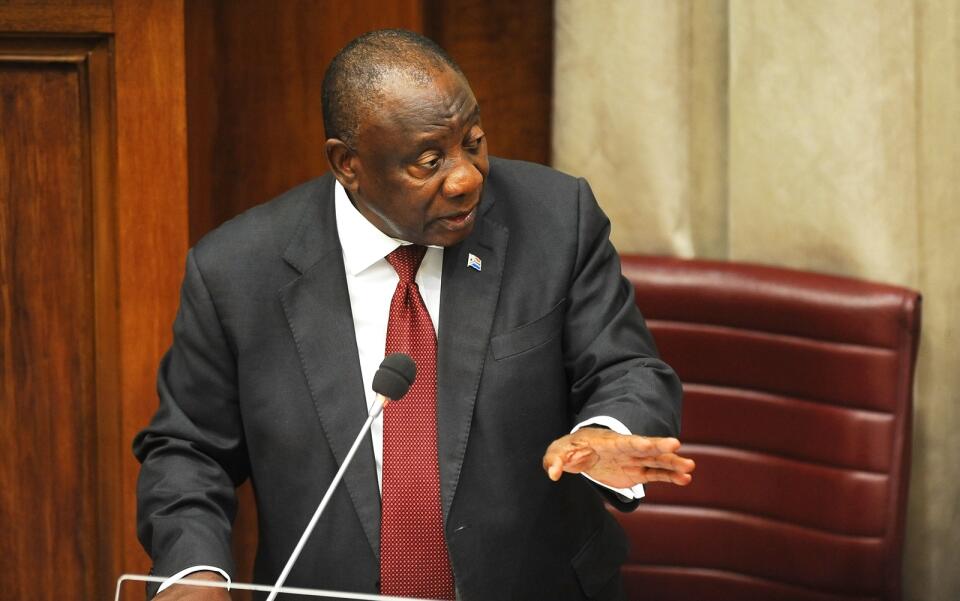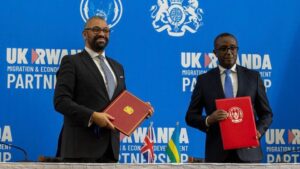Picture: Phando Jikelo/African News Agency (ANA) – South African President Cyril Ramaphosa. China and Russia have all the reasons to feel buoyant in their pursuit to diminish reliance on the dollar, embolden and expand BRICS, and thereby obscure the G7 even further. In recent years, there has been a surfeit of countries knocking on the BRICS door seeking admission, the writer says.
By David Monyae
From May 19 to 21, 2023, Japan will be hosting the 49th Group of Seven (G7) Summit in the historic city of Hiroshima. Founded as an informal group half a century ago, the G7 has been a club or clique of the global elite, representing some of the world’s biggest economies and democracies. The Group currently accounts for account for 27 percent of global GDP. “The G7 are home to over 0.8 billion people with an average life expectancy of 82 years and a current median age of 43 against a global average of 30.”
For a long time, due to American pre-eminence on global affairs, the G7 had sway on macroeconomic issues. This position was partly spurred by the fact that the Group was formed amid the throes of the oil and energy crisis of the 1970s, a side-effect of the Yom Kippur War. Fifty years after its formation, the time is ripe to appraise this select group – ascertain its stance and relevance of global affairs.
2023 poses a particular challenge to the G7 as the world’s attention is still trained on Russia, a formal member of the G7, whose 2014 suspension and then exclusion four years later changed what was then called the G8 into the G7. Another matter worth noting is that Japan, the incumbent president of the G7 trod the unusual route of not inviting South Africa, a regular attendee and de facto representative of Africa, to the Summit. Japan opted, in lieu of that, to invite Azali Assoumani, President of Comoros and Chair of the African Union (AU).
South Africa was reportedly chagrined or blindsided by what some call a snub. But, should South Africa, or the rest of the non-G7 members really be concerned about not receiving invitations from this elite Group? Is the G7 really an elite Group worth the envy of other global players? The answer seems to be a resounding No! if observers are concerned about substance rather than optics.
The declining allure of the G7 seems tied to the challenges that face its undisputed heavyweight – the United States. No doubt, one of the issues to be discussed at the Summit will be the conflict between Russia and Ukraine. What will ensue from there is predictable, and jejune condemnations of Russia will be reiterated.
This is because, coincidentally, Russia’s suspension and subsequent exclusion from the G7 had to do with Russia’s fraught relationship with Ukraine. It is also expected that the G7 will support the ICC arrest warrant against Vladimir Putin, the President of Russia. Judging from Putin’s relationship with the G7, and assured of support or indifference from non-G7 members such as China and South Africa, Putin will scarcely be concerned about any criticism from Hiroshima. In India (which, as President of the G20, has been invited to Hiroshima), China and South Africa, Russia has fellow members of the BRICS on which it will depend for understanding if not overt support.
Indeed, groups such as the BRICS are putting up challenges, if not be design then by default to G7. As an exclusive group of “democracies”, the G7 has been criticised for ignoring the tastes and circumstance of the rest of the world, mostly the parts that it deems undemocratic and poor – hence not worthy of its respect. Criticism has sometimes come from within the G7, with the most sensational being Donald Trump’s insistence that Russia should be readmitted to the Group.
These issues are sounding what could be the death knell to the G7, not its formal but substantial existence. The members will still be wistfully hanging on to its founding principles and rapidly evaporating influence, which will be buffeted by the Groups such as the BRICS, the individual rise of China and India, and the dwindling circumstances of some G7 members, chiefly the United States.
America’s Silicon Valley Bank (SVB) and Signature Bank collapsed in March 2023. They are “two of the largest U.S. banks to fail since the Great Depression of the 1930s – have led some to wonder if the nation may be headed for a new widespread banking crisis.” The impact will have ripple effects and give more impetus to the drive for de-dollarisation of global trade.
According to the US’s own admission, efforts by some countries, mainly China and Russia, to wean themselves from the dollar have been underway for more than a decade. Writing in 2021, the Congressional Research Service took solace in the notion that both Russia and China “still rely heavily on the dollar,” and that “China holds significant dollar reserves, and does not allow its currency, the renminbi (RMB), to be traded freely in foreign exchange markets.” What has happened since 2021 has seen some shifts, and Russia is in an unprecedented hurry after the commencement of hostilities with Ukraine and the attendant sanctions that that incurred.
China and Russia have all the reasons to feel buoyant in their pursuit to diminish reliance on the dollar, embolden and expand BRICS, and thereby obscure the G7 even further. In recent years, there has been a surfeit of countries knocking on the BRICS door seeking admission.
Many of these countries comes with bounties of unmatched resources that will shift the global economic trends. Saudi Arabia, Iran, Argentina, the United Arab Emirates, Algeria, Egypt, Bahrain have expressed interest. It could be surmised that Nigeria, Africa’s biggest economy, is also interested. Anil Sooklal, South Africa’s ambassador to BRICS has disclosed that the group with meet in will meet in Cape Town on June 2-3 to discuss BRICS enlargement. Interests in the BRICS expansion is bucking the arguments of doomsayers who were scripting obituaries of the group. Giant oil producers, should they be included in BRICS, will give the group much needed impetus and wind in the sails against reliance on the dollar. The effect is likely to rankle the G7.
In BRICS, countries that have endured G7 criticism will find more understanding and tolerance, and they will freely vent their intention to address material issues rather than try to meet G7 standards that the developing world finds airy. With this said, South Africa will not only not look forward to invitations from G7, but it would also comfortably not expect them.
Prof David Monyae is Associate Professor of Political Science and International Relations, and Director of the Centre for Africa-China Studies (CACS)
This article is exclusive to The African. To republish, see terms and conditions




